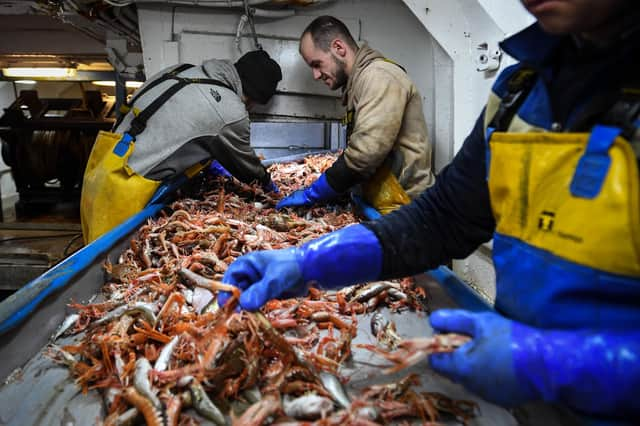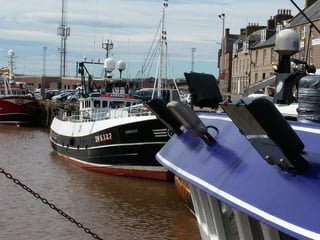Brexit trade deal: Fishing industry needs Scotland to grasp opportunities not grievances – Brian Wilson


Betrayal, con-trick, sold down the river… we’ve been hearing it for decades; inside and outside the EU, whoever was in government.
The audience for these rituals is never meant to notice (and generally doesn’t because it is a complex subject) that despite all of the above, our Scottish fishing barons become even richer and more powerful.
Advertisement
Hide AdAdvertisement
Hide AdFive families effectively control nearly half of Scotland’s quotas. Before the law took an interest, it was reckoned more “black fish” were landed in Scotland than under EU quotas.
Taking advantage of opportunities
While the barons prospered mightily, it has been a different story in many of Scotland’s traditional fishing communities which were marginalised under the Common Fisheries Policy and survive largely on shellfish.
For them, increased quota is a far less significant issue than access to markets. The real damage to these Scottish fishermen and businesses would have been from “no deal” with the EU. Why would anyone, at this juncture, vote for that?
Whatever one thinks of Brexit, a fishing deal that gives increased quotas, a five-year transition to full control of UK waters and – critically – continuing access to EU markets is a betrayal of nothing. The question is whether Scotland will take advantage of these opportunities – not a word we hear much of.
The real con-trick is the pretence there is a single entity called “the Scottish fishing industry” rather than a series of regional industries which, historically and currently, have different and often conflicting interests. This is largely disguised by rhetoric from the most powerful.
This dichotomy is reflected in the Western Isles – where I live – which is why most fishermen here voted for Brexit. They saw an opportunity for decades of disadvantage to be reversed if lost rights could be restored.
The same applies in many parts of Scotland which associate the decline of local, non-intensive fishing industries with a more general economic malaise and lack of employment opportunities.
Reversing the spiral of decline
Hector Stewart, who co-owns Kallin Shellfish in Uist, has spent a lifetime in the industry, sees the deal as “not a big win, but a win” with five years to build capacity in order to take advantage of increased access – if it exists. But will it? That will not now depend on Brussels or London, but Edinburgh.
Advertisement
Hide AdAdvertisement
Hide AdAt present, local fishermen have no quota for the vast stocks of herring and mackerel west of the Hebrides which are fished by boats from the north-east of Scotland, Shetland and Ireland. The same goes for most species of white fish. The islands are spectators to the vast wealth taken from their own waters.
The spiral of decline has wiped out career prospects in the local fishing industry and contributed to out-migration by the young. What’s left is highly dependent on migrant labour. These deceptive words “the Scottish fishing industry” really do conceal a multitude of sins.
Last year, an Oban-registered boat hit rocks in Shetland. A quintessentially Scottish story? She was Spanish-owned and, when the Coastguards arrived, nobody on board spoke English. The Ullapool-registered boat which spent months within sight of our house destroying crab stocks, before moving on, is Chinese-owned and foreign-crewed. And so it goes on.
As Hector said: “Brexit can give us what we need in terms of access to a resource but we still need people. We need training and investment if we are going to seize the opportunity over the next five years. It can transform the islands economy but we need a plan.”
Indeed we do. What a great challenge for a minister who could see opportunity rather than grievance, challenge the power of vested Scottish interests and lead a revival of coastal communities, based on the new freedom to apportion resources.
Is there any chance of it happening? Almost certainly not.
A message from the Editor:
Thank you for reading this article. We're more reliant on your support than ever as the shift in consumer habits brought about by coronavirus impacts our advertisers.
If you haven't already, please consider supporting our trusted, fact-checked journalism by taking out a digital subscription.
Comments
Want to join the conversation? Please or to comment on this article.
